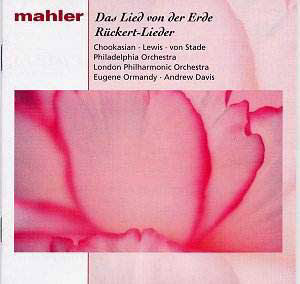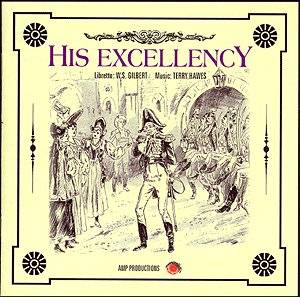 Composer: Gustav Mahler
Composer: Gustav Mahler
Works: Das Lied von der Erde, Rückert-Lieder
Performers: Richard Lewis (Tenor), Lili Chookasian (Mezzo), Frederica Von Stade (Soprano), Philadelphia Orchestra/Eugene Ormandy, London Philharmonic Orchestra/Andrew Davis
Recording: Recorded in Town Hall, Philadelphia, February 9, 1966; EMI Abbey Road Studios, London, December 8, 15 & 16, 1978
Label: Sony Essential Classics SBK53518
Gustav Mahler’s “Das Lied von der Erde” stands as a monumental testament to the composer’s artistry, merging symphonic and vocal elements into a poignant contemplation of life and death. Composed between 1907 and 1909, the work reflects Mahler’s experiences with existential despair and the natural world, encapsulating his vision through a series of six songs that traverse the seasons of life. The coupling with the “Rückert-Lieder,” composed in 1901-1902, provides a complementary exploration of love and loss, highlighting Mahler’s lyrical depth and emotional range.
Eugene Ormandy’s interpretation of “Das Lied von der Erde” emphasizes a symphonic approach, framing the work as a cohesive orchestral narrative rather than a sequence of independent songs. This perspective aligns with scholarly views that consider the first two songs as movements one and two, while the subsequent three flow together in a scherzo-like manner. Ormandy’s orchestral palette is rich, particularly in the lush string playing of the Philadelphia Orchestra, which brings a splendid warmth to the texture. However, there is a noticeable lack of differentiation between the songs, particularly in the third through fifth, where the emotional contrasts inherent in Mahler’s writing could have been more pronounced. Richard Lewis’s tenor voice possesses a mellifluous quality, yet at times he appears more as an observer than an active participant, particularly in “Der Trunkene im Frühling,” where a greater engagement with the text would enhance the listener’s experience.
The recording captures notable moments, such as the exquisite woodwind introduction to “Von der Jugend,” where Lewis’s lighter tone resonates beautifully. Yet, moments of detachment emerge, especially in the climactic phrases where Lewis’s delivery lacks the intensity found in interpretations by singers such as Peter Schreier or Fritz Wunderlich. Ormandy’s interpretation tends to favor a smoother execution, sacrificing the rougher edges that Mahler’s music often demands. The passage “Das Firmament blaut ewig” suffers from a lack of irony, which diminishes its impact. Conversely, the Philadelphia Orchestra consistently shines, with the strings exhibiting a refined expressiveness that elevates the performance.
Lili Chookasian’s contributions in the second half of the disc are less compelling. Her light mezzo-soprano struggles against the orchestra’s weight in pieces like “Ich weine viel in meinen Einsamkeiten,” where the orchestral swell eclipses her voice. Ormandy’s interpretation here leans toward a polished sound, which at times undermines the emotional gravity of the texts. The interpretation of “Der Abschied” culminates in a performance that, while technically proficient, lacks the tragic weight that this pivotal moment demands. The orchestral parts are beautifully shaped but sometimes feel too restrained, robbing the music of its emotional catharsis.
The engineering quality of the recording is commendable, with a clarity that allows the intricacies of Mahler’s orchestration to emerge. Nonetheless, the balance occasionally tips in favor of the orchestra, particularly in climactic sections where vocal lines are overshadowed. Andrew Davis’s direction of the “Rückert-Lieder,” featuring Frederica Von Stade, offers a stark contrast, showcasing a more intimate and expressive handling of the vocal lines. Von Stade’s performance reveals her at the zenith of her vocal powers, delivering nuanced interpretations that resonate deeply with the listener.
This release presents a compelling, if not definitive, interpretation of Mahler’s late masterpieces. While Ormandy’s refined orchestral sound and the Philadelphia Orchestra’s superb playing provide a solid foundation, the performances by Lewis and Chookasian exhibit a certain detachment that diminishes the emotional engagement of the works. The inclusion of the “Rückert-Lieder,” however, showcases a more successful realization of Mahler’s lyrical gifts through Von Stade’s expressive singing. The recording serves as an accessible entry point for budget-conscious listeners, yet it falls short of the more profound interpretations found in the discography of Mahler’s works. The Philadelphia Orchestra remains the undeniable highlight, its artistry elevating the performance even as the vocal contributions reveal the limitations of the interpretation.



